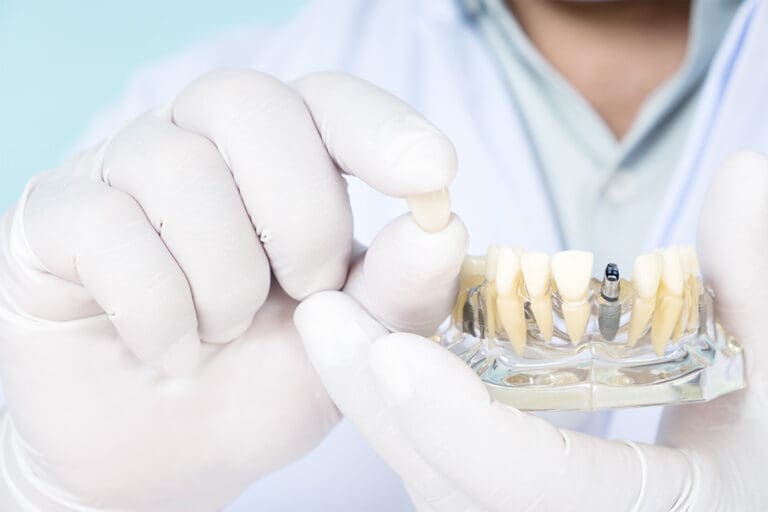Thumb-sucking and pacifier use are natural self-soothing habits for many infants and young children. While these behaviors are generally harmless in the early years of life, prolonged thumb-sucking or pacifier use can impact your child’s oral development and overall dental health. As a parent, it’s essential to understand the potential effects of these habits and strategies to support healthy oral development in your child.
In this article, we will examine the impact of thumb-sucking and pacifier use on children’s teeth, discuss the appropriate ages for weaning from these habits, and share practical tips from Waban Dental Group’s pediatric dental professionals to help your child transition to more teeth-friendly alternatives. By taking a proactive approach and working closely with our knowledgeable dental team, you can ensure your child’s oral development stays on track for a future of healthy, beautiful smiles.
Rely on the experienced and innovative dental professionals at Waban Dental Group to provide guidance, support, and solutions for managing common dental concerns like thumb-sucking and pacifier use, paving the way for a lifetime of dental well-being.
Understanding the Impact of Thumb-Sucking and Pacifier Use
While thumb-sucking and pacifier use can provide comfort and self-soothing for children, long-term habits may create dental and developmental concerns:
1. Dental Alignment Issues: Prolonged thumb-sucking or pacifier use can cause improper tooth alignment, including overbites or open bites, which may require orthodontic intervention later in life.
2. Development of Oral Muscles: These habits can impact the development of facial muscles and the palate, potentially leading to speech or swallowing difficulties.
3. Hygiene Concerns: Thumb-sucking can introduce bacteria, increasing the risk of cavities or other dental issues, while pacifiers can accumulate germs if not cleaned and replaced regularly.
When to Wean Your Child from Thumb-Sucking or Pacifier Use
Most children naturally outgrow their thumb-sucking or pacifier habits between the ages of two and four. However, the American Academy of Pediatric Dentistry recommends that children should cease these behaviors by the time their permanent front teeth are ready to erupt, generally around age six. At this stage, the potential impact on dental development and alignment becomes more significant.
Tips for Helping Your Child Cease Thumb-Sucking and Pacifier Use
Transitioning from thumb-sucking or pacifier use can be challenging for both children and parents. Waban Dental Group’s pediatric dental experts suggest the following tips to support your child in breaking these habits:
1. Identify Triggers: Determine what situations or emotions prompt your child’s thumb-sucking or pacifier use, and address those issues directly while providing alternative coping strategies.
2. Gradual Reduction: Reduce your child’s dependence on their pacifier by establishing limitations, such as only allowing it during bedtime or naps.
3. Positive Reinforcement: Encourage your child’s efforts to break the habit by offering praise, rewards, or special treats for successful moments.
4. Peer Comparison: Discuss examples of older siblings or friends who have successfully stopped thumb-sucking or using pacifiers as motivation and reassurance.
5. Engage Your Child: Involving your child in the process, discussing the reasons for stopping, and setting goals together can create a sense of ownership and responsibility.
Support from Waban Dental Group’s Pediatric Dental Professionals
The pediatric dental team at Waban Dental Group is here to support you and your child in navigating thumb-sucking and pacifier use, offering expert guidance and solutions for your family:
1. Dental Evaluations: At each dental checkup, our pediatric dentists will assess your child’s teeth, bite, and oral development, monitoring any impact of thumb-sucking or pacifier use.
2. Customized Advice: Our dental professionals will provide tailored suggestions and resources to help your family create a weaning plan suited to your child’s unique needs and circumstances.
3. Emotional Support: We understand the challenges and emotions associated with weaning from thumb-sucking or pacifier use and are here to offer empathetic support throughout the process.
Promoting Healthy Oral Development by Addressing Thumb-Sucking and Pacifier Use
Understanding the potential impact of thumb-sucking and pacifier use on your child’s oral development is crucial in ensuring a future of healthy, beautiful smiles. By working closely with Waban Dental Group’s pediatric dental experts and implementing effective strategies to break these habits, you can confidently guide your child toward a lifetime of strong, happy smiles.
Schedule an appointment with our pediatric dental professionals today with us at Waban Dental Group to discuss your concerns about thumb-sucking or pacifier use and any other dental issues affecting your child’s well-being. Together, we can create a nurturing and proactive dental care plan that supports your child’s oral health and fosters a future of confident, joyful grins.






